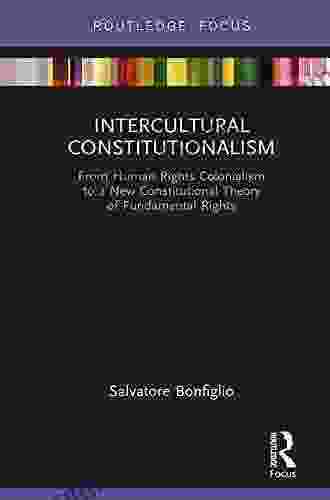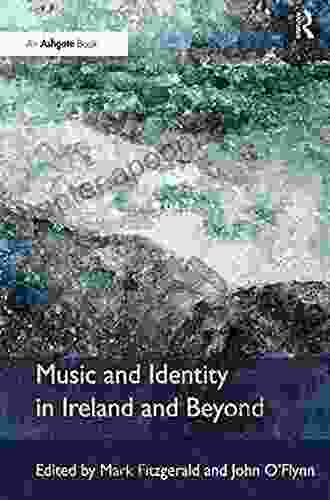From Human Rights Colonialism to New Constitutional Theory of Fundamental Rights: A Paradigm Shift in Global Constitutionalism

Human rights have long been a central concern of international law and global governance. However, the dominant human rights discourse has been shaped by a colonial legacy that has resulted in a narrow and often paternalistic approach to human rights protection. This article challenges the prevailing human rights colonialism paradigm and introduces a new constitutional theory of fundamental rights that redefines the relationship between individuals, the state, and the international community.
The human rights colonialism paradigm is based on the assumption that Western liberal democracies possess a superior understanding of human rights and that they have a responsibility to spread this understanding to the rest of the world. This paradigm has led to a top-down approach to human rights protection, in which international organizations and Western governments have imposed their own conceptions of human rights on other countries, often without regard for local cultural and political contexts.
4.6 out of 5
| Language | : | English |
| File size | : | 2224 KB |
| Text-to-Speech | : | Enabled |
| Screen Reader | : | Supported |
| Enhanced typesetting | : | Enabled |
| Print length | : | 138 pages |
The new constitutional theory of fundamental rights, in contrast, is based on the principle of subsidiarity. This principle holds that decisions about how to protect human rights should be made at the most local level possible. The theory also emphasizes the importance of cultural diversity and the need to respect the different ways in which human rights are understood and protected in different societies.
The new constitutional theory of fundamental rights has a number of advantages over the human rights colonialism paradigm. First, it is more respectful of cultural diversity. Second, it is more democratic, as it gives local communities a greater say in how their human rights are protected. Third, it is more effective, as it is based on the idea that human rights protection is best achieved through a bottom-up approach that takes into account local needs and conditions.
The new constitutional theory of fundamental rights is a transformative approach to human rights protection. It challenges the dominant human rights colonialism paradigm and offers a more just, equitable, and effective way to protect human rights around the world.
The Human Rights Colonialism Paradigm
The human rights colonialism paradigm is based on the assumption that Western liberal democracies possess a superior understanding of human rights and that they have a responsibility to spread this understanding to the rest of the world. This paradigm has its roots in the colonial era, when European powers imposed their own laws and values on their colonies. After World War II, the human rights colonialism paradigm was institutionalized through the creation of the United Nations and other international organizations.
The human rights colonialism paradigm has had a number of negative consequences. First, it has led to a top-down approach to human rights protection, in which international organizations and Western governments have imposed their own conceptions of human rights on other countries, often without regard for local cultural and political contexts. This has resulted in a number of human rights abuses, as local communities have been forced to adopt foreign models of human rights protection that do not fit their own needs and values.
Second, the human rights colonialism paradigm has created a dependency relationship between Western countries and the rest of the world. Developing countries have come to rely on Western aid and expertise to protect their human rights. This has made them vulnerable to pressure from Western governments and organizations, who have often used human rights as a pretext for political and economic intervention.
Third, the human rights colonialism paradigm has led to a narrow and often paternalistic approach to human rights protection. This approach has focused primarily on civil and political rights, while neglecting economic, social, and cultural rights. It has also emphasized individual rights over collective rights, and has failed to take into account the structural factors that contribute to human rights violations.
The human rights colonialism paradigm is a flawed and outdated approach to human rights protection. It is based on a false sense of superiority, and it has led to a number of negative consequences. It is time for a new paradigm, one that is based on respect for cultural diversity, democracy, and local ownership.
The New Constitutional Theory of Fundamental Rights
The new constitutional theory of fundamental rights is a transformative approach to human rights protection. It challenges the dominant human rights colonialism paradigm and offers a more just, equitable, and effective way to protect human rights around the world.
The new constitutional theory of fundamental rights is based on the principle of subsidiarity. This principle holds that decisions about how to protect human rights should be made at the most local level possible. The theory also emphasizes the importance of cultural diversity and the need to respect the different ways in which human rights are understood and protected in different societies.
The new constitutional theory of fundamental rights has a number of advantages over the human rights colonialism paradigm. First, it is more respectful of cultural diversity. It recognizes that there is no one-size-fits-all approach to human rights protection, and it allows for different societies to develop their own models of human rights protection that are consistent with their own values and traditions.
Second, the new constitutional theory of fundamental rights is more democratic. It gives local communities a greater say in how their human rights are protected. This is because decisions about human rights protection are made at the local level, where people are most familiar with the local needs and conditions.
Third, the new constitutional theory of fundamental rights is more effective. It is based on the idea that human rights protection is best achieved through a bottom-up approach that takes into account local needs and conditions. This approach is more likely to be successful than a top-down approach that imposes foreign models of human rights protection on local communities.
The new constitutional theory of fundamental rights is a paradigm shift in global constitutionalism. It offers a more just, equitable, and effective way to protect human rights around the world.
The new constitutional theory of fundamental rights is a transformative approach to human rights protection that challenges the dominant human rights colonialism paradigm. It is based on the principles of subsidiarity, cultural diversity, and democracy. It offers a more just, equitable, and effective way to protect human rights around the world.
The new constitutional theory of fundamental rights is still in its early stages of development, but it has the potential to revolutionize the way we think about human rights. It is a paradigm shift that is long overdue, and it offers hope for a more just and equitable world.
4.6 out of 5
| Language | : | English |
| File size | : | 2224 KB |
| Text-to-Speech | : | Enabled |
| Screen Reader | : | Supported |
| Enhanced typesetting | : | Enabled |
| Print length | : | 138 pages |
Do you want to contribute by writing guest posts on this blog?
Please contact us and send us a resume of previous articles that you have written.
 Book
Book Novel
Novel Page
Page Chapter
Chapter Text
Text Story
Story Genre
Genre Reader
Reader Library
Library Paperback
Paperback E-book
E-book Magazine
Magazine Newspaper
Newspaper Paragraph
Paragraph Sentence
Sentence Bookmark
Bookmark Shelf
Shelf Glossary
Glossary Bibliography
Bibliography Foreword
Foreword Preface
Preface Synopsis
Synopsis Annotation
Annotation Footnote
Footnote Manuscript
Manuscript Scroll
Scroll Codex
Codex Tome
Tome Bestseller
Bestseller Classics
Classics Library card
Library card Narrative
Narrative Biography
Biography Autobiography
Autobiography Memoir
Memoir Reference
Reference Encyclopedia
Encyclopedia Life Changing Ebooks
Life Changing Ebooks Lucy Ashford
Lucy Ashford Matthew Hopkins
Matthew Hopkins Peter Zablocki
Peter Zablocki Liz Fenwick
Liz Fenwick Ost Neer
Ost Neer M Henderson Ellis
M Henderson Ellis Martin Robinson
Martin Robinson Shayne Daku
Shayne Daku Matthew J Kushin
Matthew J Kushin Mike Laughead
Mike Laughead Patricia Albere
Patricia Albere Peter A Perry
Peter A Perry Tracy Warrington
Tracy Warrington The Princeton Review
The Princeton Review Makenzie Campbell
Makenzie Campbell Laura Axelrod
Laura Axelrod Sean Gaillard
Sean Gaillard Loretta Chase
Loretta Chase Marqs Desade
Marqs Desade
Light bulbAdvertise smarter! Our strategic ad space ensures maximum exposure. Reserve your spot today!

 Jerry WardRequiem And Poem Without Hero: Unraveling the Heartbreaking Saga of Loss and...
Jerry WardRequiem And Poem Without Hero: Unraveling the Heartbreaking Saga of Loss and... Yasushi InoueFollow ·13.3k
Yasushi InoueFollow ·13.3k Garrett PowellFollow ·5.7k
Garrett PowellFollow ·5.7k Robert BrowningFollow ·15.6k
Robert BrowningFollow ·15.6k Douglas AdamsFollow ·15k
Douglas AdamsFollow ·15k Jorge AmadoFollow ·19.8k
Jorge AmadoFollow ·19.8k Giovanni MitchellFollow ·6.5k
Giovanni MitchellFollow ·6.5k Marcus BellFollow ·11.9k
Marcus BellFollow ·11.9k John UpdikeFollow ·14.9k
John UpdikeFollow ·14.9k

 W.H. Auden
W.H. AudenTerrorist Events Worldwide 2024: A Comprehensive Guide to...
Terrorism is a global threat that affects...

 Carson Blair
Carson BlairBeautifully Uplifting And Enchanting Novel Set In The...
Set in the beautiful West Country, this...

 Jeffrey Cox
Jeffrey CoxAn Utterly Captivating and Uplifting Story of One Woman's...
Immerse yourself in an extraordinary...

 Greg Foster
Greg FosterEngaging the Issues Through the Politics of Compassion
: The Power of...
4.6 out of 5
| Language | : | English |
| File size | : | 2224 KB |
| Text-to-Speech | : | Enabled |
| Screen Reader | : | Supported |
| Enhanced typesetting | : | Enabled |
| Print length | : | 138 pages |














